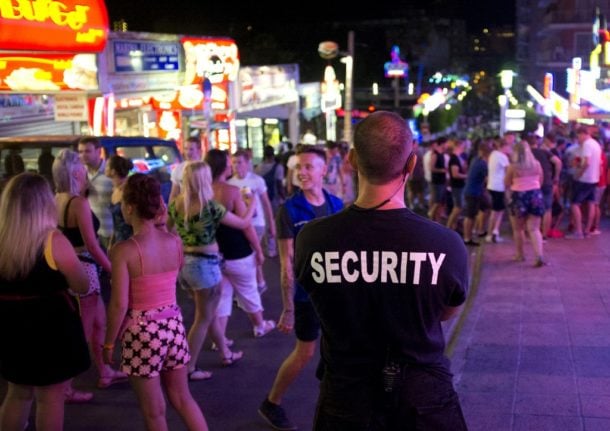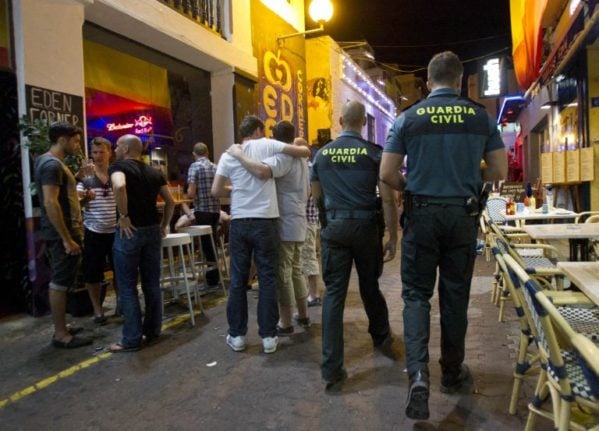The Spanish city of Málaga has vowed to fight what is known as turismo de borrachera or “drunken tourism”, after the end of Covid restrictions have seen the return of big hen and stag parties.
Residents of the historic city said they are fed up with Magaluf-style tourism and wanted the city centre to be “returned to the malagueños“.
In a city council plenary session Thursday, Carlos José Carrera, the president of the association of residents of the historic centre (Asociación de Vecinos del Centro Antiguo) made a crude description of what city centre residents have to put up with.
“It’s a plague”, he said of the tourists, who come to the city with “megaphones and loudspeakers”.
“They roam our streets carrying out acts of vandalism, without decorum, causing fights,” and leaving “a barbaric stench of vomit and urine behind them,” he said.
Javier Frutos, president of Mahos, a body representing the city’s hospitality sector, said he rejected “all types of public disturbance that are not constructive for the city”, he told Málaga Hoy. While not everyone celebrates stag and hen dos in the same way, many of the groups of visitors that come to Málaga choose to dress up in costumes, and “some restaurants don’t allow customers in those kinds of clothes.”
The mayor of Malaga, Francisco de la Torre, has previously said he will fight against “party tourism” and said he would “not tolerate an uncontrolled city.” Earlier this month, the council discussed requiring tourist apartments to install noise monitors.
The city councillor in charge of tourism, Jacobo Florido, said he will commit to “strong measures and increase police presence”.
Malaga received 1.2 million tourists in the first quarter of 2022 – four times more than last year, according to figures published by the Andalucian Institute of Statistics and Cartography (IECA).
Although the city has not yet returned to pre-pandemic levels, the province accounted for 26 percent of tourists visiting Andalucia so far this year.



 Please whitelist us to continue reading.
Please whitelist us to continue reading.
Member comments